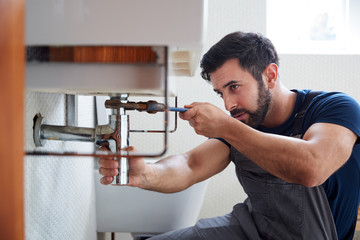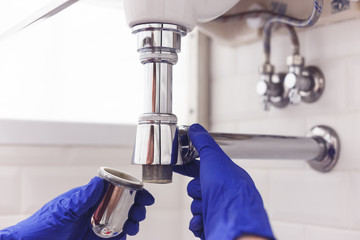Plumbing expert witnesses provide their expertise in cases involving equipment failure, water intrusion, construction defects, and other issues related to piping systems. Plumbers undergo years of training before they are licensed, and licensing requirements vary from state to state. Regardless of your experience level, getting a license and continuing your education is important.

Plumbing Springdale AR is a highly skilled trade that provides essential services, such as cleaning drinking water and waste disposal. It also provides a challenging and rewarding career for motivated individuals. Many vocational schools offer training in plumbing basics and pipe fitting. These programs prepare you for work in commercial, industrial, or residential locations. The program typically combines classroom learning with practical hands-on experience in the field. Apprentices learn specialized skills and procedures while working under the guidance of a licensed plumber.
After completing the required number of apprenticeship hours, you can apply for your journeyman license. You can then work independently or start your own business. Some plumbers choose to obtain a college degree, but this is optional for licensure in most states. However, formal education does increase wages in some cases.
Having a basic understanding of plumbing terminology can go a long way towards helping you understand what’s going on when you call your plumber. It will also make you a more articulate customer when it comes time to discuss any repairs or equipment upgrades that you may need.
One of the most important parts of any plumbing system is the pipes that bring water from the source to your fixtures. They come in all shapes and sizes and are made of a variety of materials, including galvanized iron, cast iron, copper, plastic (CPVC), ABS, and flexi.
A branch drain is a pipe that leads from your soil line to the main drain pipeline. It’s an essential part of any plumbing system and can help you avoid costly leaks. The most common clogs in plumbing systems involve kitchen sinks and toilets, so knowing how to unclog them can save you a ton of money in the long run.
Attention to detail is a key competency that hiring managers often seek in candidates. People with this skill pay close attention to every aspect of their work, from researching and preparing to producing results that are accurate, reliable and precise.
Hiring managers often look for candidates that demonstrate this ability on their resumes and in interviews. It shows that a candidate is meticulous in their work and doesn’t tolerate mistakes.
Hiring managers also know that sloppiness can cost them money and time, which is why it’s important to find applicants who have this skill. However, you can’t just put a bunch of asterisks next to this skill on your resume and expect it to get you hired.
Plumbing is a highly regulated profession, and as such, most states require licenses. Depending on the state, licensing may take the form of an apprenticeship certificate or a business license.
Plumbing professionals are responsible for various tasks, from installing a new toilet to installing a new sink. This profession requires a high degree of expertise and attention to detail. Licensing laws and inspections often regulate plumbing projects to ensure their safety. While many states are introducing new laws to enforce plumbing codes, older laws may not be up-to-date and can hinder the development of the plumbing industry.
While plumbing is highly specialized, many plumbers choose to work for themselves in the field. This type of job requires extensive classroom and hands-on training. Some plumbers may also choose to work for larger entities. These organizations include municipal buildings, airports, and schools. Some plumbers may even find work in the military. If you have a background in the military, this could be an ideal position for you.
In addition to the water supply, plumbing also serves as a waste disposal system. The plumbing system in a home includes sinks, toilets, and showers. A toilet is connected to a water tank with a flapper valve. It has a float ball on it that determines how much water is in the tank. The toilet also has a floor flange that connects to the sewer line. In addition, a gate valve controls the flow of liquids in the pipes. Plumbing systems often include a horizontal branch, which leads from the plumbing fixtures to a waste stack.
Plumbing is integral to most utility systems. In fact, all utility systems are connected to each other by plumbing. Plumbing materials include copper, carbon steel, brass, and PVC. However, the most common plumbing materials are brass, copper, and carbon steel. It is important to choose the correct material for your system based on your needs.
